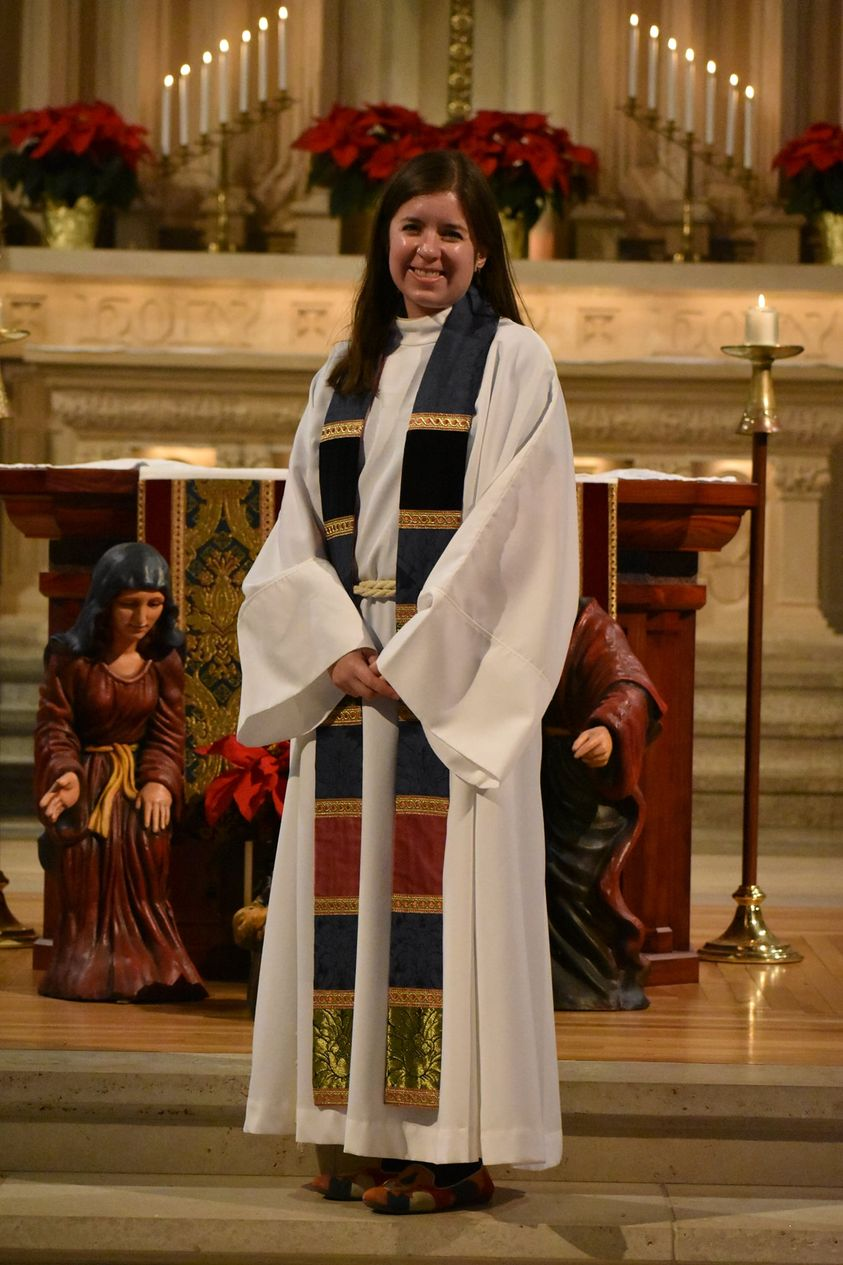
Co-missioners,
Our guest writer today is the Rev. Kirsten Worzala Dumke. A 2012 graduate of Pacific Lutheran Theological Seminary, Kirsten is a Board Certified Chaplain on the Palliative Care Team of the University of Wisconsin Hospital’s Carbone Cancer Center. She also serves as the pastor of Parroquia Santa Maria, a Spanish-speaking parish associated with Luther Memorial Church in Madison, Wisconsin.
Kirsten wrestles in this essay with two problems. The first is the way that deadly disease can alienate people from the God we need. The second is the challenge of ministering to an alienated person in a setting that proscribes a full-throated witness to the promise of Christ’s death and resurrection. Here she’ll push us to bank for their sake on the boundless mercy of God.
Peace and Joy,
The Crossings Community
Merciful Accompaniment
Thursday Theology: that the benefits of Christ be put to use
A publication of the Crossings Community
by Kirsten Worzala Dumke
There are some patients I will never forget, not because of their illness or how it presented, but because of their story and the way they chose to live while navigating a life-limiting illness that impacted every day of their life and every fiber of their being. There are patients who I remember because of how they showed up as their true selves. There are patients who I remember because of the love and grace they showed the world in their shortened time here. There are patients who I remember because of the struggle we experienced together as they pushed back with a vengeance against the disease that robbed them of so much, some doing so with realistic prognostic awareness, others with an unhealthy dose of denial.
One such patient is someone I will call Ryan, who I got to know over the course of yet another months-long hospital stay. Ryan was afflicted with Cystic Fibrosis (CF), a genetic disease that
causes the lungs and other organs to succumb to infections and, over time, causes irreversible damage. Unfortunately, even with early diagnosis and advanced therapies, this rare and complex disease is life-threatening and life-limiting. Over the past several decades, incredible advances taken place in the care and treatment of people with CF. Still, the average lifespan of someone with this disease currently sits around 44 years of age. Needless to say, this is a devastating diagnosis for people like Ryan and his family.
Ryan had already experienced some of the worst impacts of CF with the death of his brother, who had suffered from years of emotional, physical, and spiritual symptoms in addition to countless treatments and hospitalizations. Amid indescribable grief around the death of his brother, Ryan worried about his new wife, who I will call Amy, and the life they promised to one another. “In sickness and in health” were vows they had to take very seriously, especially after receiving the news that Ryan was unlikely to live to see the fourth decade of his life due to the intensity of his illness.
This is where I met Ryan and Amy.
- In grief over the death of Ryan’s brother.
- In frustration with the loss of what this disease had stolen from him.
- In anger that he continued to suffer so intensely in the hospital.
- In utter determination to live long enough for scientists to find a cure for Cystic Fibrosis, because—as he had told me multiple times with a progressively more vehement tone—there is nothing after this life. Nothing. There is nothing after this life when you die.
No unconditionally loving God would make him suffer this much, so he had determined that it had to be the case that either God didn’t exist, or that God was a vengeful, malicious god and Ryan wanted nothing to do with that god. As I sat and listened to Ryan and Amy, I was grateful that my chaplaincy residency assisted me in naming and finding grounding in my own spiritual foundation. I placed my feet firmly on this as Ryan shared his spiritual beliefs. With a handful of years in chaplaincy under my belt, this kind of spiritual belief wasn’t new to me, but there was something about Ryan’s agony and suffering that stuck with me. My own beliefs didn’t change. Even so, the spiritual and emotional pain that Ryan felt and expressed was intense and profound.
It was evident that Ryan’s spiritual and existential suffering added excess fuel to the fire of his overall suffering, so, after a careful introduction to the idea, we dove into the topic of spirituality and the afterlife in the hope of unpacking it and making it less flammable. My role as a chaplain isn’t to convince people of a particular spiritual belief, but to walk with them in their truths and suffering and provide space to tend to the patient’s wounds. That was exactly what we did together, day after day, and we continued these conversations as his disease progressed and his body wasn’t able to sustain life without the aid of the highest ventilation support his medical team had to offer.
While I didn’t share this out loud with Ryan, when we sat together in moments of uncertainty, anger, and grief, I kept the story of the Road to Emmaus as my foundation, thinking about the conversation and presence that Jesus brings with him on that journey. In the midst of death and uncertainty, Jesus shows up as someone unknown, a stranger with a listening ear who asks good questions, does not judge, and holds space with the afflicted. As he did that Easter day, Jesus walks with us even when we don’t recognize who he is and even when the world seems hopeless and our paths uncertain.
Taking care not to impose my Christian perspective on this atheist patient, as I grounded myself in the story of accompaniment and sat with this man whose prognosis was awful, I was reminded of the multiple ways that God shows up displaying his mercy. Even in the mist of horrendous spiritual, emotional, and physical suffering, the God of mercy showed up for Ryan in the presence of his devoted spouse and loving parents. The God of mercy showed up in the doctors, nurses, and respiratory staff who worked diligently to provide the best patient-centered care possible for a patient who continued to bathe in the pool of denial that he would live to see a cure for this disease.
God showed up in mercy when Ryan shared his story of suffering and, even if God didn’t take the suffering away, God did not leave Ryan to experience it alone. As we have seen in the birth of Christ and as we will soon witness when we see Jesus on the cross, God shows up in mercy even when someone like Ryan doesn’t recognize this or acknowledge God’s share in our suffering through the Crucified One.
While I would like to share that Ryan’s story had a happy ending where he found peace with his grief and anger and frustration, there was no such ending. Even as I watched him wheel down the hallway toward an ambulance that would take him to a transplant center, with the hope—but not the promise—that he would be eligible for a lung transplant, Ryan clung tightly to the suffering that had become a part of him. It broke my heart that he would likely continue his life in this way and, in the same breath, it brought me comfort to trust that he would not be alone in his journey.
Even after nine years of chaplaincy, sitting in this space is never easy—it isn’t supposed to be—but there is always hope. The hope in this story shows up as it did on the road to Emmaus, Christ walking beside Ryan unrecognized so that he wouldn’t be alone in his suffering. I also hope that his family has found the love and peace they have needed in these years since Ryan’s death. There is hope that someday there will be a cure for this horrid disease. Above all there is hope that the God of mercy who died for Ryan in Jesus’ death will not give up on Ryan even though Ryan gave up on God.
Whatever the story, may we all continue to show up as God did in Jesus, remembering that we each walk our own journey and that our Triune God will be with us in unexpected and unrecognizable ways.






You must be logged in to post a comment.